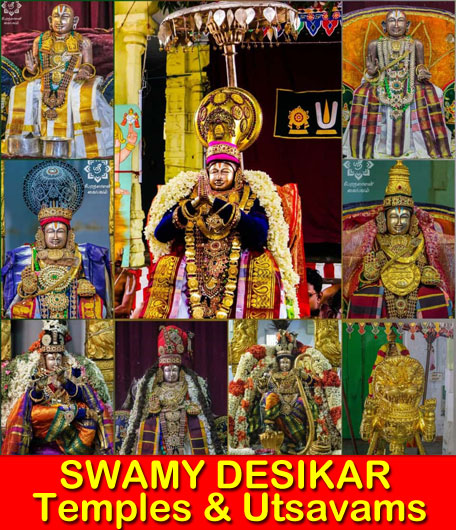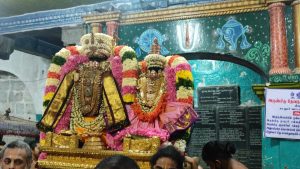The renowned Bollywood actor-director, Rajkapoor’s centenary is being observed throughout the nation with much enthusiasm. It was quite natural for the film lovers, especially for his fans to indulge in nostalgia over his old movies. Importantly, it is difficult to forget his famous R.K. Studio at Chembur in Mumbai, which was sold to Godrej Group a few years ago owing to financial constraints, cited by his eldest son Randhir Kapoor. In the yesteryear, especially in 1950s and 1960s, Raj Kapoor gave new dimension to the tinsel world, besides following a style of his own, after imbibing the acting trait from his beloved father, Prithiviraj Kapoor, who founded the Prithivi theatre.
It was not surprising, when Raj Kapoor emerged successfully as a stage-actor in 1940s, before entering in his debut film ‘Aaag’ as an actor-diector. Though the film failed at the box office, there was no looking back for the showman, who with his intrinsic ability and uncanny anticipation portrayed almost all roles with clincial perfection. Raj Kapoor had dished out hit films like ‘Awara’, ‘Shree 420’, ‘Jis Desh Mein Ganga Bahti Hai’, ‘Anari’ ‘Sangam’, ‘Teesri Kasam’, and not, but not the least, ‘Mera Naam Joker‘, ‘Bobby’ and ‘Satyam Sivam Sundaram’ among others with clinical precision. For instance, the 1951-release Awara, with Nargis as his leading lady, created a sensation, not only in India, but in the then Soviet Union, too, as the Russians started humming the title song of the movie, ‘Awara hoon.’
The first Prime Minister of India, Pandit Jawaharlal Nehru once remarked, albeit in a lighter vein, that Raj Kapoor was more popular than him in Moscow, when a large number of people in Russia, sang that particular Mukesh song and enquired about his welfare. Raj Kapoor also saw to it that his younger brother and a twelve-year-boy then Shashi Kapoor made his debut in Awara. Raj Kapoor films had a socialist appeal and his movies also emphasised from communism point of view. For instance, in the 1955-release, Sree 420, when a car owner abuses the passer-by Raj Kapoor for obstructing his vehicle on the road with, “arre oh charso bees ”, the ever-agile hero will simply look at the number plate of his car and reply calmly, “mein tho char so bees hoon, lekin aap?”(I am 420. What about you?), as it was not difficult to guess that the vehicle number indicated 840. When the shell-shocked person stared at him and with choicest expletives, our hero will run away with the memorable Mukesh song, “Mera Jhoota hai Japani, Pandalu englishthani, sarpe lal thopi, phirbhi dhil hai Hindustani”.(My slipper is from Japan, pant is from England with red hat, but in spite of that, my heart and soul are with India). In another scene of the same film, when a man laughs at him, after he fell on the road, his relevant dialogue, “khud ghirpadoke thab maloom hoga” (When you yourself slip on the road, you will realise the adverse impact of it) is remembered fondly by the viewers. The film also depicts the exploitation of the hoarders and black-marketers at the cost of poor, downtrodden and toiling masses.
In the 1959-release Jis Desh Mein Ganga Baheti Hai’, Raj Kapoor impresses upon the audience that the dacoits could be brought to the mainstream and in public life with love and affection rather than of using the brute force. He also stressed on the aspect of involving the wrong-doers in decision-making process. Raj Kapoor touches the emotional scenes with aplomb. For instance, when the heroine Padmini wants to elicit his opinion on how does she look like in a new sari with array of ornaments, “main kaisi lagrahi hoon?”, Raj Kapoor shot back with, “Vidwa lagrahi ho”.(You resemble a widow). His dialogue was not far to seek-off, as his lover was wearing the jewels stolen by the dacoits from a wedding family, after massacring them. The climax scene of the film had endeared the audience towards him, when he ensures that the dacoits surrendered before the cops with a touching song, “aa aab lotu chale” from whom else, his favourite Mukesh. The late villain and character actor Pran said that he had specially thanked Raj Kapoor for offering the cruel dacoit leader role to him in the film, as a section of audience was furious over his cruel activities in the film and was hell-bent on slapping him with their slippers.
In the film Anari, Raj Kapoor exposes the sub-standard drugs prescribed by the medical shop owner and his lover Nutan’s father that kills his landlady Lalithaa Pawar, who treats him like his son, even though the hero was struggling to pay his monthly rent. He also brings in to light the nexus between the drug owners and criminals. The song, “Sabkuch sikkha hamne, sikhe hoshiyare, sachhain duniyawalon hamhai anari” would showcase the views of the hero in the film. In the 1964-release Sangam, he fell in love with the heroine Vyjyantimala, without knowing that she was in love with his dear friend Rajendra Kumar. The moment he came to know about their love affair, he pleads with his friend that had he made it known to him earlier, he would have sacrificed his love. The film became a super hit, as for the first time; a Hindi film was shot in Europe and in Eastman Colour. He had also introduced his son Rajiv Kapoor as a ten-year-old boy in the film.
However, Raj Kapoor’s hope on ‘Mera Naam Joker’ had ended in a disaster, when the film flopped at the box office. He also had to suffer financially, as he had invested huge money in the film and had a lot of stake in it. If there was two intervals in Sangam, Raj Kapoor saw to it that Mera Naam Joker had three intermissions. It is regrettable to note that he had not banked on any other movie like Mera Naam Joker for attaining greater heights. The grapevines in film circle inform that the then renowned Bengali film actor Uttam Kumar was to some extent responsible for scuttling the prospects of the film, in retaliation to Raj Kapoor ensuring the failure of his maiden-venture in the Hindi film ‘Chhotisi Mulaqat’ with Vjyyantimala in the lead. The story revolves around that since Uttam refused to accept the role of Rajendra Kumar offered to him initially in Sangam, the enraged showman wanted to teach him a lesson. It was quite obvious on the part of Uttam to retaliate later.
After the setback from Mera Naam Joker, Raj Kapoor wanted to put a full stop to his acting. When the film ‘Bobby’ was in the offing, he preferred a new team for the project. His dedicated team members like, writer, K.A. Abbas, music composers Shankar Jaikishan, and singer Mukhesh were not included in the film. From the old team, he had retained only the cameraman Karmarkar, although he would have wished for the lyricist Shailendra, had he been alive. The music composers’ Laxmikant-Pyarelal, initially hesitated to accept the offer from Raj Kapoor, as they did not want to antagonise the Shankar-Jaikishen duo. However, Raj Kapoor made it crystal clear to them that he will not go back to his original music directors, and will look for an alternative, if Laxmi-Pyari refuses the offer. It may be recalled that Raj Kapoor picked up the duo Shankar and Jaikishen virtually from a street and they were associated with him for more than a decade.
Raj Kapoor also faced problem with Mukesh, when he chose the debutant ‘Shailendra Singh’ to sing for his new-entrant and son Rishi Kapoor in Bobby. His decision had annoyed Mukesh, who was hoping against hope that his son Nitish Mukhesh would be given a break in the film. Naturally, the relationship between the two got strained when Mukesh went for a music trip to U.S. accompanied by Lata Mangeskar and a few others, despite Raj Kapoor, asking him not to make the trip, bearing in mind his deteriorating health condition in. When Mukesh died in U.S. due to heart-attack and the body was brought back to then Bombay, Raj Kapoor virtually cried and regretted, “I asked him not to go, but he didn’t listen to me. I have lost my soul. Jeena yahan, marna wahan,” reminding his sensational song of “Jeena yahan, marna yahan” from Mera Naam Joker. A section of film lovers, who till then viewed Pran as a notorious villain, were surprised, when he took just one rupee to sign the film Bobby, as a mark of gesture.
Raj Kapoor’s estranged relationship with Lata Mangeskar was well known to the connoisseurs of films. Though Laxmikant-Pyarelal accepted his offer in Bobby, the duo put their foot down and said that they would not compose for his film, ‘Satyam Sivam Sundaram’, unless Lata was permitted to sing for the project. Raj Kapoor had no other alternative, but to accede to their requests, as he realised by then that the time has changed and he no longer had the authority to wield power. Adding salt to the wound, Lata had put forth a condition that she would not like to see the face of Raj Kapoor during the recording of her songs. Moreover, the harsh reality had dawned on him that his experiment with the singer Sarada had not succeeded, as she was considered to be below-par by a large number of music lovers. Raj Kapoor also realised much to his chagrin and discomfiture that his introduction of Shailendra Singh had not created the desired impact, as Rishi Kapoor, who switched over to Kishore Kumar and Mohammed Rafi later, charged Shailendra with, “how can I recommend him, when he is concentrating on acting, instead of attempting to brush up his career as a singer.”
The credit goes to Raj Kapoor for introducing many newcomers. For instance, the lyricist Shailendra was working as a fitter, before he was encouraged to write-up songs for films. Though the film Teesri Kasam, a Raj Kapoor and Waheeda Rehman starrer, fetched many coveted awards, it flopped miserably. This virtually led the producer Shailendra to commit suicide, although Raj Kapoor went out of the way to help him and his family whenever they were in financial distress. The entire unit in R.K. Studio would agree in unison that Raj Kapoor would also present them gifts liberally whenever any happy occasion takes place in their life. The beauty with Raj Kapoor was that he never mixed up personal bonding with professional relationship. Though he found it difficult to cope up with generation gap and the speed of the youth in early 1980s, he was not averse to accepting it in right spirit and in a proper perspective.
Raj Kapoor was a team man. Rahul Rawail, who worked as his assistant director in many films, said that the showman had minutely observed everything and even for lunch, he would ask his crew to suggest hotels situatged even at far-off places with different varieties. Raj Kapoor also had penchant for picking up languages and found a way with instruments. The well-known director, Lekh Tandon, who like Raj Kapoor, grew under the shadow of Prithiviraj Kapoor revealed that the showman made the nation sing ‘Awara Hoon’, where two bars of music follow the words. Importantly, he would pick an instrument and start playing with it, as he attached equal importance to music in his films. While Mukesh lent his Chapelinesque tramp a voice for the screen, Raj Kapoor often reminded the movie lovers about K.A. Abbas and Shailendra, who created a base for his socialist ideas to emerge with flying colours.
Sources in the R.K. Studio would vouch for the fact that a light-boy in his unit would get the same importance, similar to a big star. He would also attribute the success of his films to the crew members and would see that the entire team enjoys the ambience and success of each other. Till the last day of his death, he swept on the floor, as he did not want to forget his humble beginning. Raj Kapoor was down to earth, and needless to say, success did not go to his head. He was ranked in the company of renowned directors like Shanta Ram, Guru Dutt, Hrishikesh Mukherjee and Vijay Anand. Needless to say, Raj Kapoor had a valid message in his films. There is no iota of doubt that many tinsel world actors and directors would come and go, but Raj Kapoor would be remembered forever 36 years after his demise.
K.V. Venugopal, Chennai.








